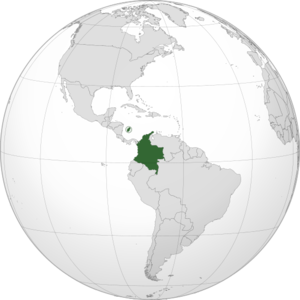A committee of the Colombian Ministry of Health and Social Protection has recommended a compulsory licence to be issued for cancer treatment Glivec (imatinib) sold by Novartis.
A compulsory licence permits pharmaceutical manufacturers to produce a drug that is patent protected without the consent of the patent holder. In this case, the purpose is to ‘restore competition for this product in the Colombian market,’ and to bring ‘financial sustainability to the health system’. A final decision from the Ministry is pending.
The World Trade Organization’s Trade-Related Aspects of Intellectual Property Rights (TRIPS) agreement grants the authority for governments to override a patent, but usually in the case of a public health emergency.
At the moment, the cost of Glivec, also known as Gleevec, in Colombia is US$15,000; nearly double the per capita gross national income. The government believes that the decision is in the public interest, and if it goes ahead, will be the first compulsory licence issued by Colombia for patented medicines.
Novartis has argued that this decision violates their intellectual property rights, may impact foreign investment, and undermines their significant research and innovation efforts. A spokesperson for Novartis commented that ‘although Novartis respects and abides by the Colombian regulatory framework, the company is concerned that the technical and factual arguments presented before the authorities have not been taken into account during the process.’
In the past, compulsory licences have caused tension between pharmaceutical companies and developing economy governments. India, for example, has pursued compulsory licensing as a way of lowering drug costs. In fact, in April 2013 the Supreme Court of India rejected Novartis’s seven-year battle to patent its cancer drug Glivec, ruling that the drug was not a new invention [1].
Because of the large number of generic pharmaceutical manufacturers based in the country, global pharmaceutical manufacturers are concerned the country is favouring its domestic industry at their expense. However, the Indian Government has reportedly told the US–India Business Council that it will not issue compulsory drug licences to local firms for commercial purposes. In January 2016, India rejected an application from Lee Pharma requesting a compulsory licence for a diabetes drug made by AstraZeneca, which seems to support this claim.
Related articles
Sun Pharma launches imatinib mesylate in the US
Poland’s experience with generic imatinib
Reference
1. GaBI Online - Generics and Biosimilars Initiative. Indian Supreme Court rejects Glivec patent [www.gabionline.net]. Mol, Belgium: Pro Pharma Communications International; [cited 2016 Apr 29]. Available from: www.gabionline.net/Policies-Legislation/Indian-Supreme-Court-rejects-Glivec-patent
Permission granted to reproduce for personal and non-commercial use only. All other reproduction, copy or reprinting of all or part of any ‘Content’ found on this website is strictly prohibited without the prior consent of the publisher. Contact the publisher to obtain permission before redistributing.
Copyright – Unless otherwise stated all contents of this website are © 2016 Pro PharmaCommunications International. All Rights Reserved.
Source: MinSalud, Reuters








 0
0











Post your comment